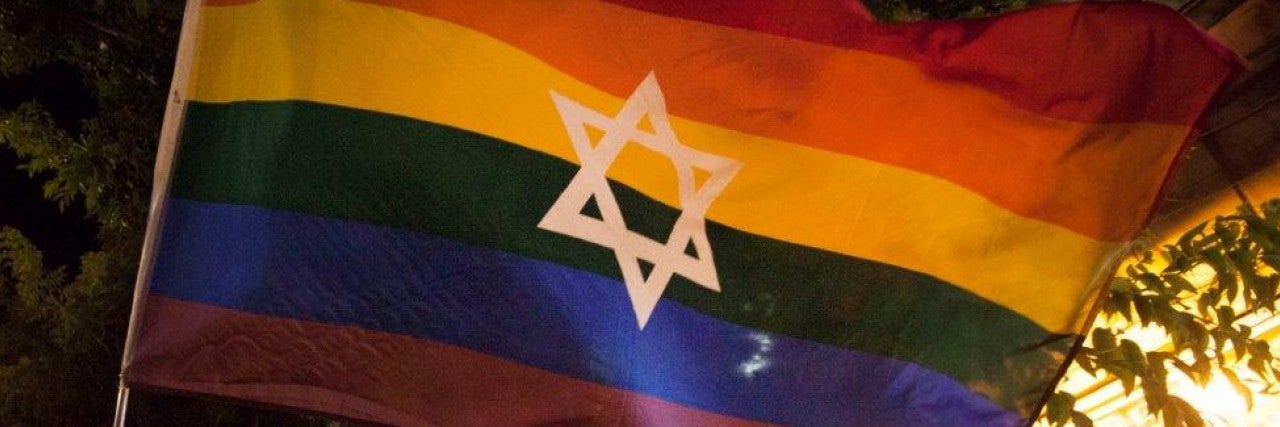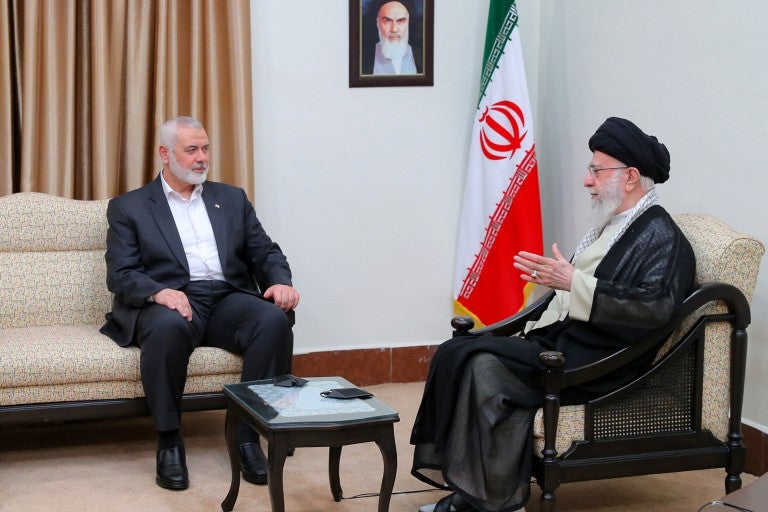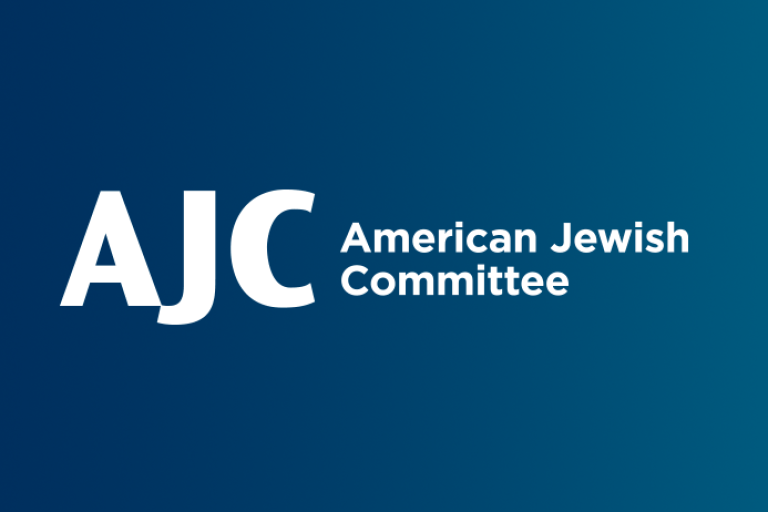June 26, 2019
When Amanda Berman and other Jewish activists showed up at the DC Dyke March in June carrying rainbow flags emblazoned with the Star of David, organizers tried to turn them away. The flags of the U.S. and Israel, countries with “specific oppressive tendencies,” they said, were not allowed.
Berman argued that it was unfair to require Jewish lesbians to deny their support of Israel in order to march for gay rights. In the end, organizers gave in and other marches have said they will allow the flags.
As gay pride events take place around the world this month, battles over intersectionality and clashes of identities are unfolding as well, often excluding Jews who support the Jewish state, as most do. Similar battles have unfolded in recent years as organizers of the Women’s March have confronted Jewish participants over their support of Israel and hailed Louis Farrakhan as a hero, despite his notorious antisemitism.
At AJC Global Forum 2019, three Jewish leaders discussed how Jewish activists can speak out on a range of social justice causes without forsaking their Jewish identity. Here are four steps to embracing intersectionality and Israel.
1. Be Intentional:
The term “intersectionality” was originally coined by Columbia University legal scholar Kimberlé Crenshaw to describe the unique dual discriminations that black women face in the workplace. It’s not racial discrimination or gender discrimination – it’s both. The word has since been used to describe the multiple forms of discrimination all individuals face and the understanding that none stands alone. Each combination creates its unique set of sensitivities.
“We have to understand that people with different backgrounds and often multiple identities experience discrimination in different ways,” said Rabbi Angela Buchdahl of Central Synagogue in New York City. “In order to fight sexism, you actually have to look at it through the lens of many different other oppressions.”
But use of the term has strayed from its original intention, with activists for certain causes insisting that supporters must align on multiple issues, not just their cause of choice.
Case in point: the D.C. Dyke March. Buchdahl said when people who don’t support Israel exclude Jews who do, that is antisemitism. She points to New York University, where more than fifty student groups have pledged a blanket ban on partnerships with Jewish groups that support Israel, regardless of the purpose.
2. Get Your House in Order: The Jewish community must embrace the diversity of cultures and opinions within the tradition, said Tema Smith, Director of Community Engagement for Holy Blossom Temple in Toronto.
“I think when we as a community grapple with some of those issues it’s going to help us in all of the other movements we want to invest in,” she said. “You have to have your own house in order before you fix someone else’s.”
Buchdahl, the Korean-American rabbi of New York’s Central Synagogue and a member of AJC’s Board of Governors, agreed. She noted, as an example, that Jews of color should not be treated as a monolith.
“There are a million ways that people feel marginalized within our own community and are carrying multiple identities around,” she said. “It makes me want us to embrace this idea of trying to create a little more space for the complexity of that and a little less of putting people into neat boxes. “
3. Lean In: When the first Women’s March took place, Buchdahl didn’t want to march in a parade “where I felt a big piece of my identity would be vilified in some way.” But when the Black Lives Matter platform referred to Israel as an apartheid state that commits genocide, she realized opting out was not the best choice.
“We weren’t at the table. Others were who shaped that platform in a very different way,” she said.” Jews who support Israel can not be shut out or shut themselves out of social justice causes that are deeply important to them.
“We will completely lose if with every cause that says ‘we are pro BDS’… we just opt out,” she said. “We will be on an island by ourselves and it will not be okay. We will also opt out of the moral obligations as Jews to be present in these issues. It’s deeply important for us to lean into this more, rather than less.”
4. Practice humility: Rabbi Gil Steinlauf, founder of the Hineni Fellowship for LGBTQ Jewish Leadership and former spiritual leader of Washington’s Adas Israel Congregation, said that when he hears disagreement or criticism of Israel he takes a breath and asks, “Could they be right?”
“As Americans, we have an obligation to speak out when we think the State of Israel is crossing a moral line, when the State of Israel does something that is unjust,” he said. “We have an obligation. Why? Because we’re Jews… That’s how we do it – with compassion, with the ability to listen, and the ability to speak our truth.”
Smith agrees that relationships are best built when we are humble. “[Israel] is a triumph for us that came at a loss to someone else,” she said. “We have to be able to hear that… There is nobody who is immune from their story impacting someone else. That is our job as people who want to engage in dialogue, to be able to not be on the defensive, even for two minutes.”


